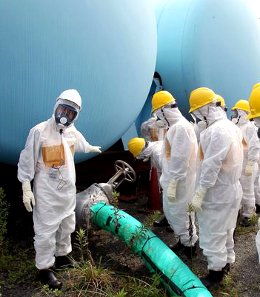Fukushima release stokes snub
 Chinese consumers are leading a boycott of Japanese products in response to the release of treated wastewater from the Fukushima nuclear power plant.
Chinese consumers are leading a boycott of Japanese products in response to the release of treated wastewater from the Fukushima nuclear power plant.
In a surge of state-supported nationalist sentiment against Japan, Chinese officials and consumers are calling on the world to stop buying everything from high-end skincare items to everyday household goods made in Japan.
Lists of targeted products have been circulated online, prompting some buyers to return Japanese cosmetics and goods over the weekend.
Some consumers even used handheld Geiger counters to test products for radioactivity, forcing manufacturers to declare their items “radiation-free”.
Reports say that even table salt has become scarce, as people fear contamination will disrupt sea salt production.
This outpouring of anti-Japanese sentiment is being carefully managed by state media and aligns with Beijing's ongoing strategy of mobilising consumers to exert economic pressure on countries whose actions it opposes.
Chinese President Xi Jinping has amplified this approach, using nationalist sentiments and perceived external threats to consolidate his power.
Traditionally, China has relied on both economic growth and nationalism to legitimise Communist Party rule. However, China's current economic challenges have led President Xi to place greater emphasis on stoking anti-foreign nationalist sentiments, according to Suisheng Zhao, a scholar at the University of Denver.
The recent ban on Japanese seafood, coupled with nuisance calls to Japanese businesses and government departments, marked the beginning of this wave of protest.
On Chinese short-video platforms like Kuaishou and Douyin, users uploaded videos of themselves berating Japanese recipients of their calls.
Many cited retaliation for supposed Japanese calls to the Chinese Embassy in Tokyo, as reported by the People's Daily, the official Chinese Communist Party newspaper.
However, the International Atomic Energy Agency (IAEA), following a two-year review, concluded last month that Japan's plan adheres to international safety standards and would have “negligible” radiological impact.
This ruling has been largely dismissed in China, where state media continues to stoke fear.








 Print
Print